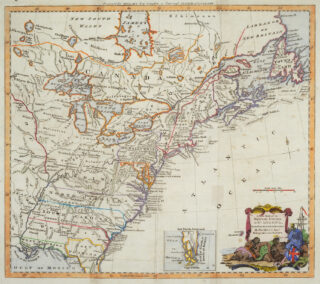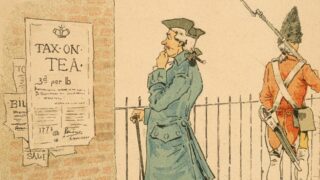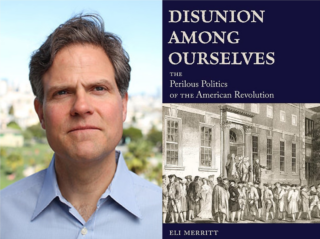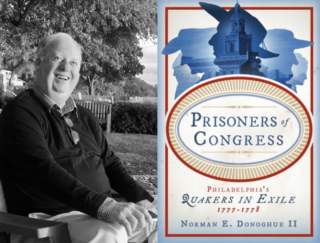Supporting scholarship and promoting popular understanding of the American Revolution is central to the work of the American Revolution Institute. The Institute welcomes distinguished scholars and authors to share their insights and discuss their latest research with the public at Anderson House through lectures, author's talks and panel discussions. The Institute also hosts a variety of other historical programs throughout the year, including our Lunch Bite object talks, battlefield tours, special Anderson House tour programs and other events. Many of the events we offer are free.

April 2023
Lecture – All the World’s a Stage: The Role of Architecture and Interior Decor in Entertaining at Anderson House, 1905-1929
Anderson House, the winter home of Larz and Isabel Anderson between 1905 and 1937, stands as a testament to all that was gracious and in good taste in entertaining during the waning decades of America’s Gilded Age. An architectural masterpiece based on the English late Baroque period, with elements from the French Beaux-Arts tradition, the house was designed as both a splendid stage upon which the social status and careers of the couple could be promoted and advanced, and as…
Find out more »Lecture – The Surveyor’s Eyes: Mapping Empire in the Era of the American Revolution
In the second half of the eighteenth century, British surveyors came to North America and the West Indies in unprecedented numbers. Their images of coastlines, forts and frontiers helped win the French and Indian War and pictured a triumphant British Atlantic world. The American Revolution shattered this vision of peace, commerce and settlement. Once tasked to promote an expansive American empire, wartime mapmakers applied their knowledge to make war on American colonists. Max Edelson, professor of history at the University…
Find out more »May 2023
Lecture – On Tea, Taxes and World History: The British East India Company and the Origins of the American Revolution
In May 1773, Parliament passed the Tea Act, which instituted a tax of three cents per pound on all British tea sold in America. The act effectively granted a monopoly on the sale of tea in the American colonies to the British East India Company, which was looking to reduce its excessive stores of tea and relieve its financial burdens. To commemorate the 250th anniversary of the Tea Act’s passage, James Vaughn, a historian of the British Empire at the…
Find out more »June 2023
Author’s Talk – Disunion Among Ourselves: The Perilous Politics of the American Revolution
Far from a harmonious collaboration, the Continental Congress during the Revolutionary War was so filled with political strife that the delegates feared the Revolutionary War would end in disunion or civil war. But instead of disbanding, these founders managed to unite for the sake of liberty and self-preservation, forging grueling compromises and holding the young nation together. Political historian Eli Merritt discusses his new book and explores the deep political divisions that almost tore the Union apart during the Revolution.…
Find out more »Author’s Talk – Prisoners of Congress: Philadelphia’s Quakers in Exile, 1777-1778
In 1777, Congress labeled a group of Philadelphia Quakers who refused to help defend the city against the imminent invasion by British troops as “the most Dangerous Enemies America knows.” They ordered Pennsylvania to apprehend them. In response, state officials sent twenty men—seventeen of them Quakers—into exile, banishing them to Virginia, where they were held for over seven months. Reconstructing this moment in American history through the experiences of four families—the Drinkers, Fishers, Pembertons and Gilpins—historian Norman Donoghue discusses how the…
Find out more »



